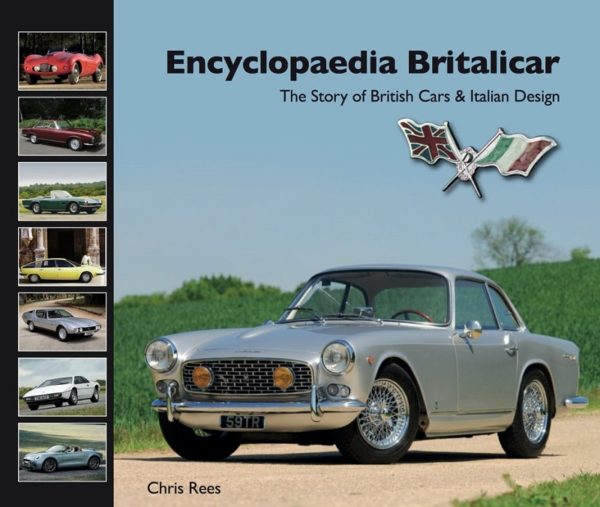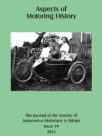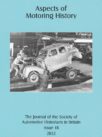
by Chris Rees
2022 review by James Loveridge
Encyclopedia Britalicar – The Story of British Cars & Italian Design by Chris Rees is a book that needs careful handling. If you let it fall open between pages 6 and 7 you will be depressingly reminded of something you would probably wish to forget. Of the 30 British Car makers listed on page 6 only 7 are still in existence and all are wholly or largely foreign owned. But keep reading, this copiously illustrated and obviously thoroughly researched book is a pleasure to read.
It is in three parts: the first summarises the British cars which benefitted from Italian flair. We are, no doubt, all familiar with the BMC Austin (ADO8) A40 and the Austin, Morris, Wolseley, Riley and MG (ADO9) variants and the later (ADO53) bigger cars as well as the Triumph Herald which all benefitted from designs by Italian Carrozzerie. In BMC’s case this was done by Farina and in Triumph’s by Michelotti. What is not so well known, except by the cognoscenti of SAHB members, is the work done for other makers by them and other Italian designers. This book sets out to remedy that ignorance.
The second part is a make-by-make history of the many stylish designs those companies had the wit to put into the hands of the many Carrozzerie involved in this kind of work. Many if not most are quite stunning but, sadly, many saw limited or, in most cases, no production. For each maker the various efforts are copiously described and illustrated. Particularly interesting are the 33 pages given to Aston Martin and the 42 pages for dear old BMC. Rather reassuringly, not all attempts are outstanding and some are quite bizarre. The Mercer Cobra (AC) on page 21 and the Bertone Arnolt Bristol on page 122 are examples. Sadly the Italians appear unable to de-brutalise the current Rolls Royce offerings.
The third part, Bodies of Work, gives the history of the various houses even including Bonioni, apparently nothing to do with the U2 warbler, which is credited with only one model, an Aston Martin Vanquish Estate Car, which is a pity as it looks like a most attractive vehicle. Helpfully this section lists the models which each of them worked on and gives a page reference, very convenient for the researcher.
In total this is an easy-to-read, seemingly comprehensive story of a fascinating part of Britain’s motoring history.
What has to be said on reading this book is that in virtually all cases the designs were improvements on the domestic product. However, the book does illustrate that in a few cases the Italians didn’t always make things better.
The book is well produced with very clear illustrations, both photographs and drawings. There are some small niggles. The Grand Tour was essentially an eighteenth century activity when art works, style and ideas – Palladian architecture for example – were brought to Britain. Judging by what they churned out the Victorians don’t seem to have learnt much from their rubbernecking in Italy. There are also some typos which sit irritatingly in such a good book as this.
Publisher: Quiller Print, Dorset House, Sowton Industrial Estate, Ascot, Berks, SL5 9NJ.
Price: £48.00
Description: hardback (29 x 25.5 cms), 304 pages with colour and black & white photos.
ISBN: 978-0-9926651-3-3







Leave a Comment